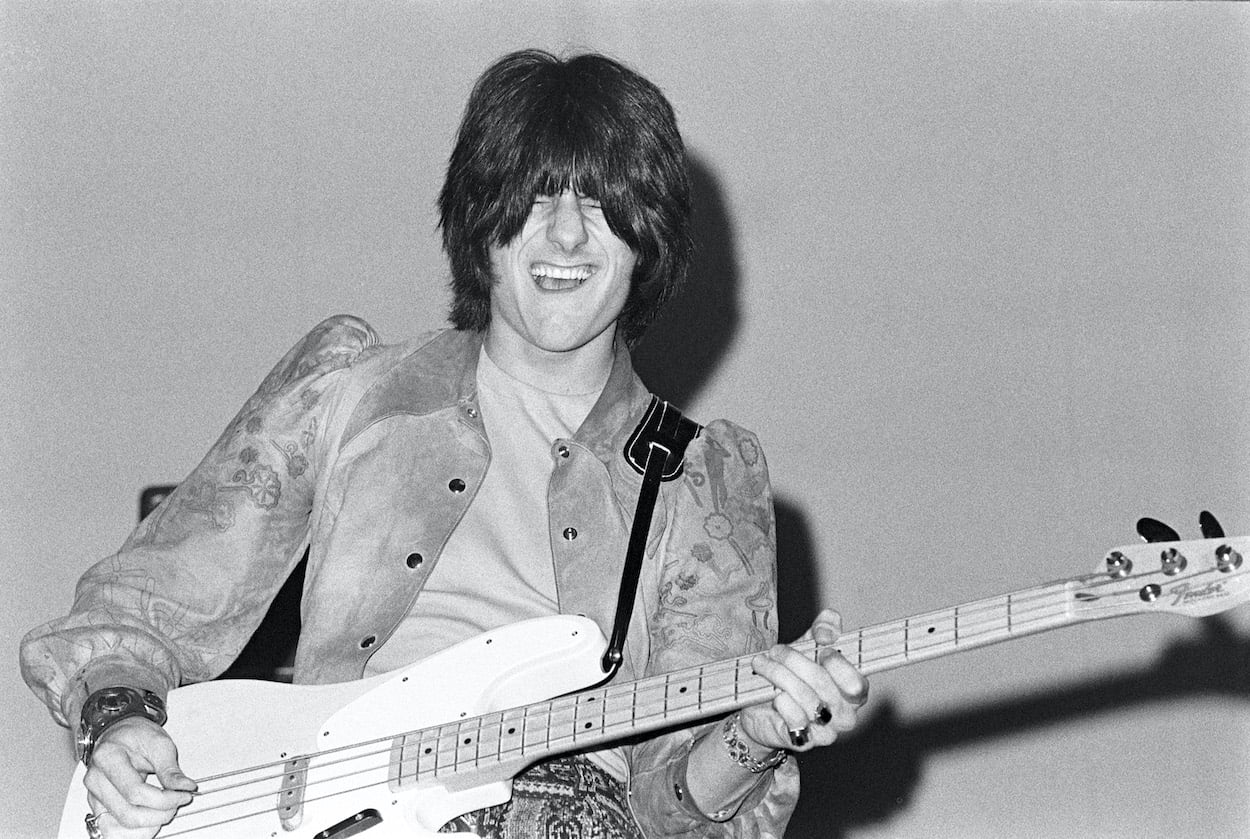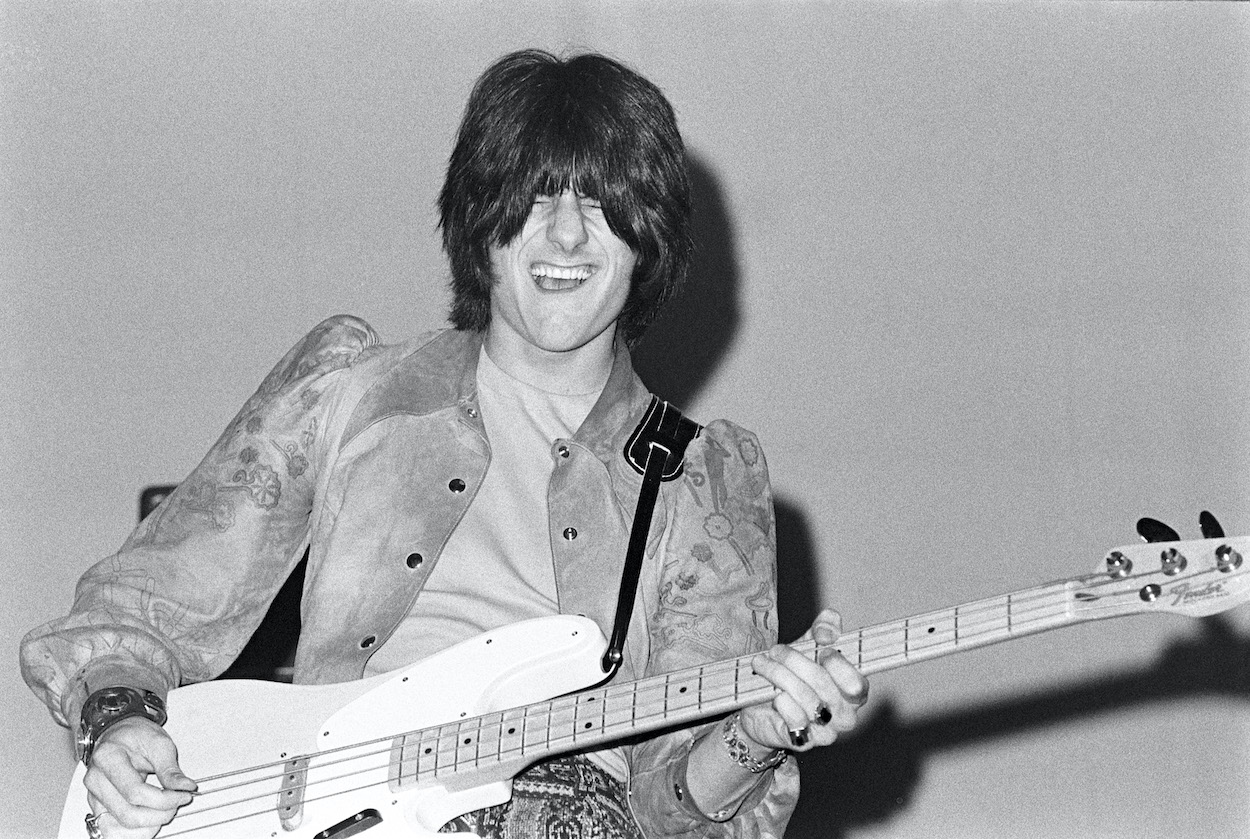
Ronnie Wood Stole the 1st Bass He Ever Owned
The Rolling Stones found success despite lineup shuffles. Ronnie Wood wasn’t one of the original five members, but he is one of the longest-tenured after more than four decades in the group. He helped write one of the Stones’ hits before he joined. And before that happened, Wood stole the first bass he ever played and paid for his crime years later.

Ronnie Wood played bass in the Jeff Beck Group before he joined the Rolling Stones
Like many artists of the era who later found fame, Wood started his music career gigging with local bands. Wood’s first group, the Birds (not to be confused with the Byrds or the Yardbirds), found some low-level success in the mid-1960s.
Wood caught a big break when guitarist Jeff Beck asked him to join a band. Beck was eager to form a new group after leaving the Yardbirds. He was already recognized as a supreme guitar talent, and Wood immediately said yes.
There were two problems.
First, Beck needed a bassist, not a second guitarist. The confident Wood knew he’d be able to play the bass and remained committed to the group.
The second, bigger issue was that Wood stole the bass he played, and he paid for his theft years later.
Wood stole the bass he played after asking to borrow it, and he paid for his crime years later
Wood didn’t own a bass when Beck asked him to join his band. As he explains in his autobiography Ronnie, Wood went to a music shop (Sound City) and picked out a Fender Jazz bass he couldn’t afford. The shop also needed his parents’ approval to sell him the bass because he wasn’t 21 years old.
That’s when Wood stole the bass.
He asked to borrow the instrument, and the shop agreed. Then the Jeff Beck Group went on tour before he had a chance to return the bass. Wood basically stole his bass, and he paid for his crime years later, as he writes in Ronnie:
“Over the years, I guess I just got too busy to give it back. But every time I saw the bass guitar, I felt bad because it reminded me how kind they were at Sound City to let me use it, and I still have it in my studio in Ireland.
“There is, however, a happy ending. Many years after I sort-of borrowed it, I went back to Sound City and told them about the guitar. They looked it up in their records and said, ‘As a matter of fact, that guitar was never returned.’ I admitted, ‘I’m the guy who stole it, and I’ve come here to pay you for it.’ And I did.”
Ronnie Wood from his autobiography Ronnie
The Jeff Beck group first played live together in March 1967 and gigged and rehearsed steadily until they hit the studio to record the debut album Truth in May 1968. Beck-Ola followed in 1969, and from there, Wood stayed busy with the Faces, his solo work, and then The Rolling Stones.
Wood more or less stole the bass he played in the Jeff Beck Group, and he literally paid for his error years later. Our guess is he could more than afford to pay for the Fender bass many times over by that point.
Beck instigated a violent attack that his bassist was lucky to survive
Playing a stolen bass in the Jeff Beck Group started a whirlwind career that saw Wood end up in The Rolling Stones. He was lucky to make it that far, as he barely survived a violent attack that Beck instigated.
At the height of the vitriolic rockers vs. mods rivalry, a group of rockers waited outside while Wood, Beck, and their bandmates dined at a roadside diner. Beck agitated the mob by goading them to attack. They were more than happy to oblige. The band rushed to their van, Beck took the wheel, and Wood dived toward an open window as one of the mob members tried to climb inside. The way Wood tells it in Ronnie, some of the rockers held onto the van as they peeled out of the restaurant parking lot.
Ronnie Wood stole a bass and was in the thick of a violent brawl during his wild younger days. He can count himself lucky he survived long enough to earn his Rolling Stones invitation in 1975.
For more on the entertainment world and exclusive interviews, subscribe to Showbiz Cheat Sheet’s YouTube channel.


